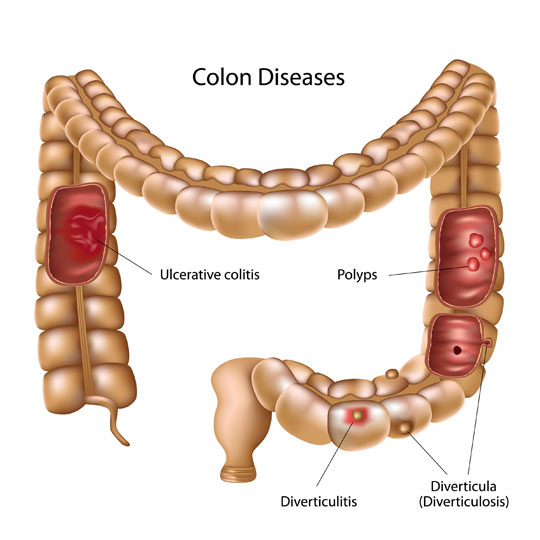Surgical treatment of Diverticulitis
If episodes are severe or frequent, the doctor may recommend surgery. The surgeon opens the abdomen and removes the affected part of the intestine. The remaining parts of the colon are reattached, anastomosed. This type of surgery, called an enterectomy, prevents recurrence of the episodes and prevents complications.
The doctor may also recommend surgery for complications of fistula or intestinal obstruction.
If antibiotics do not restore the attack, emergency surgery may be needed. Other reasons for emergency surgery may include a large abscess, perforation, peritonitis or continued bleeding.
Emergency surgery usually involves two phases. The first operation clears the infected abdominal cavity and removes part of the colon. Because of the infection and sometimes obstruction, it is not safe to reattach the colon during the first operation. Therefore, the surgeon creates a temporary hole or orifice in the abdominal area. The end of the colon is joined to the hole, a procedure called a colostomy, to allow normal eating and bowel movement. The stool is emptied into a pouch that is attached to the opening in the abdominal area. In the second procedure, the surgeon reattaches the ends of the colon and reestablishes bowel continuity.

